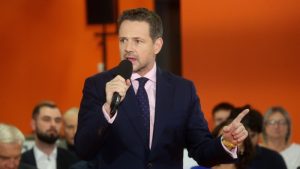Who would run Kamala Harris’s economy?
Kamala Harris is set to overhaul the US administration’s top economic team if she wins the presidency as she moves to implement the centrist approach to policy she has touted on the campaign trail.
With the race against Republican nominee Donald Trump on a razor’s edge, the vice-president is not expected to make any big decisions about appointments until after the election in early November.
But if she is elected, she will have to quickly decide what changes she wants to make to the top economic positions, drawing from current and former officials in Joe Biden’s administration as well as the private sector.
How would Harris approach the US economy?
A Harris victory would deliver less upheaval to the world’s largest economy than a second administration run by Trump, who has vowed to enact sweeping tax cuts and impose massive tariffs on imports.
But the vice-president has distinguished her plans from those of president Biden, suggesting she would shift further to the centre and be more willing to hear ideas from — and listen to the concerns of — corporate America.
“I promise you, I will be pragmatic in my approach,” she said last month in Pittsburgh, Pennsylvania, during the biggest economic speech of her campaign.
One Democratic economist said there was bound to be a significant change in personnel after Biden, partly because some officials were always planning to leave and partly because Harris would want to bring in her own team.
“I do think the default is a clean slate. Clean slate can mean people reshuffling, but I don’t think there’s a lot of people staying in their jobs,” he said.
Who would Harris choose as Treasury secretary?
By far the most consequential economic appointment for Harris would be the next Treasury secretary. Janet Yellen, who has been in the role since the start of Biden’s presidency, said she was “probably done” with the job last month during an appearance at the Texas Tribune Festival — her strongest hint yet that she will be stepping down.


Wally Adeyemo, Yellen’s deputy, is considered a natural successor, according to people familiar with the discussions. He has forged close ties with Harris — including appearing at joint events around the country — and is well regarded by lawmakers from both parties on Capitol Hill, which could make him easier to confirm.
Unlike Yellen, Adeyemo, 43, is not a macroeconomist but is known for his policy chops, having worked at BlackRock, the investment group, and led Barack Obama’s charitable foundation.
Lael Brainard, the director of the National Economic Council and a former senior Federal Reserve official, is the other top choice for Treasury secretary, according to people familiar with the discussions. However, Harris might want to wait and consider her to be Fed chair at the end of Jay Powell’s term in 2026.
If Harris decides to select the next Treasury secretary from inside the Biden administration, Gina Raimondo, the commerce secretary, and Jeff Zients, the White House chief of staff, are also potential options. They are also among the officials in the administration who have maintained the closest links with corporate America.


Who are Harris’s key economic advisers?
Since launching her campaign for the White House in July after Biden dropped out of the race, Harris rapidly assembled a group of advisers who have helped craft her economic policies and could have senior jobs in her administration.
A top aide inside the campaign is Brian Nelson, the former top official at the Treasury department responsible for sanctions and anti-terrorism finance. Gene Sperling, a veteran economic adviser who served in the Clinton, Obama and Biden administrations, has joined the campaign.
But Harris has also drawn heavily on advice from Democratic economic policy experts outside the campaign, including Brian Deese, the former director of the National Economic Council under Biden; Mike Pyle, Harris’s former chief economist, who is now at BlackRock; and Rohini Kosoglu, her former domestic policy adviser.


While Harris is expected to include many Biden officials in her administration, people close to her campaign say they do not see her appointing as many officials associated with the progressive left of the Democratic party as her predecessor did.
Would a Harris administration include business figures?
One of the biggest differences in the approach to the economy of Harris and Biden has been her familiarity and willingness to engage with business executives, which has triggered speculation that some may have top jobs in her administration should she win.
Tony West, a former justice department official and an executive at Uber who is also her brother-in-law, has been one of her top advisers in recent months, while Mark Cuban, the billionaire sport and media investor, has been campaigning for Harris and making the case that she is better for business than Trump.
“This election is a battle for entrepreneurs,” he said during a recent Harris rally in Wisconsin.


Other executives who are close to Harris include investment bankers Blair Effron and Ray McGuire, and finance executive Ken Chenault.
Harris also has far deeper connections with Silicon Valley than Biden. Karen Dunn, a lawyer who is representing Google in its antitrust battle against the justice department, helped Harris prepare for her debate against Trump last month.
Despite her apparent openness to corporate figures, Harris has not publicly said whether she would replace critical regulatory officials, such as Gary Gensler, the chair of the Securities and Exchange Commission, and Lina Khan, the chair of the Federal Trade Commission, who are widely disliked by Wall Street and corporate America for their tough enforcement actions.
US Election Countdown
Sign up to our US Election Countdown newsletter, your essential guide to the twists and turns of the 2024 presidential election
#run #Kamala #Harriss #economy




